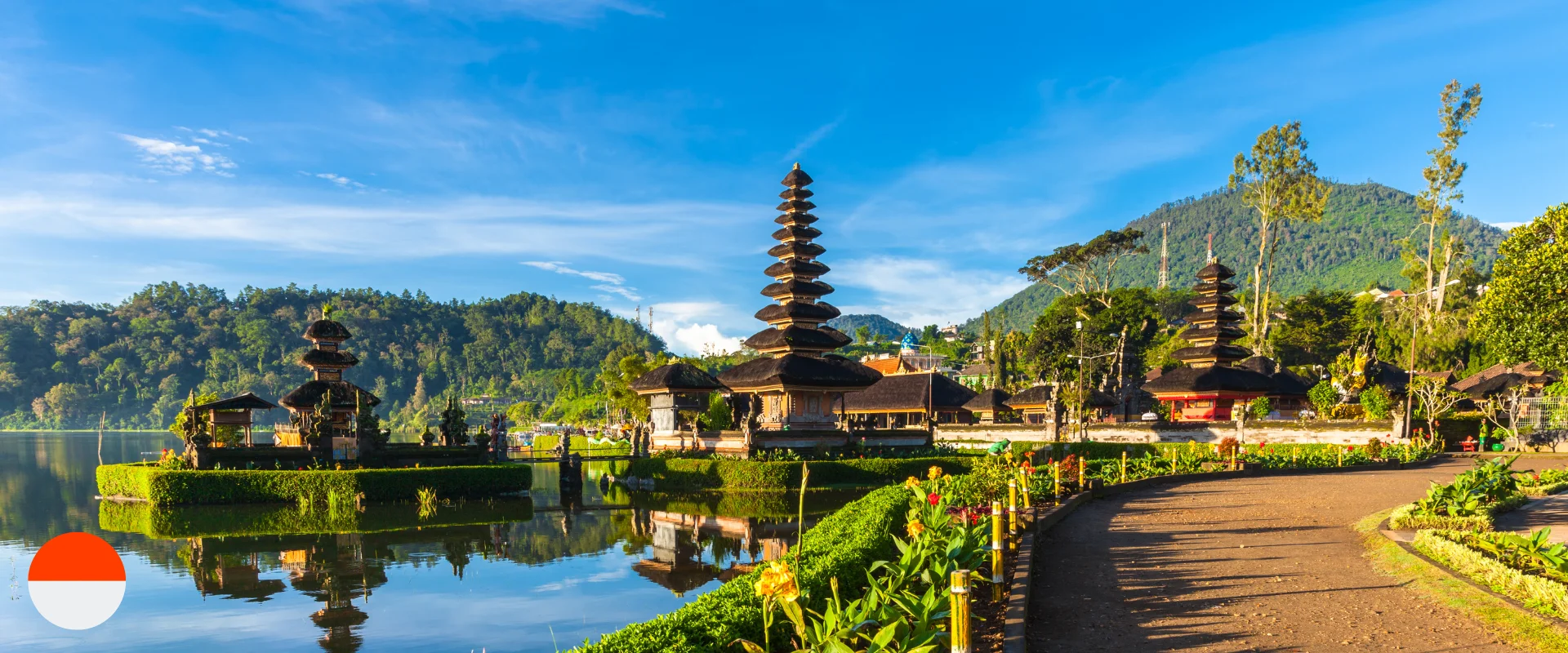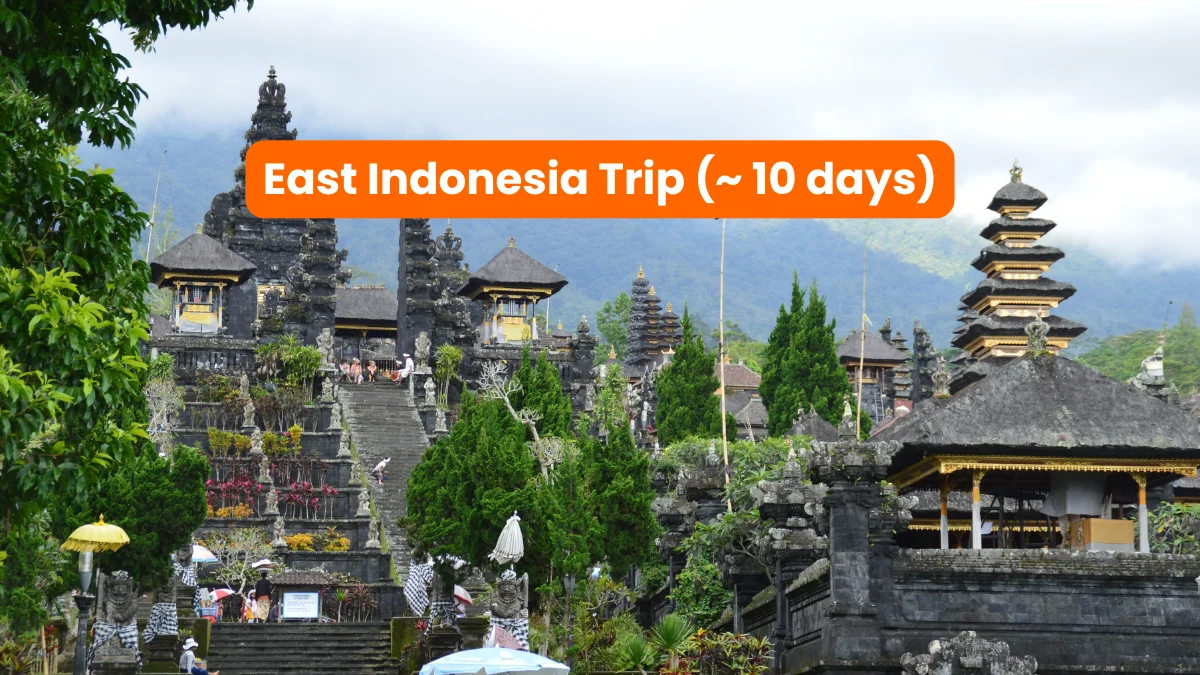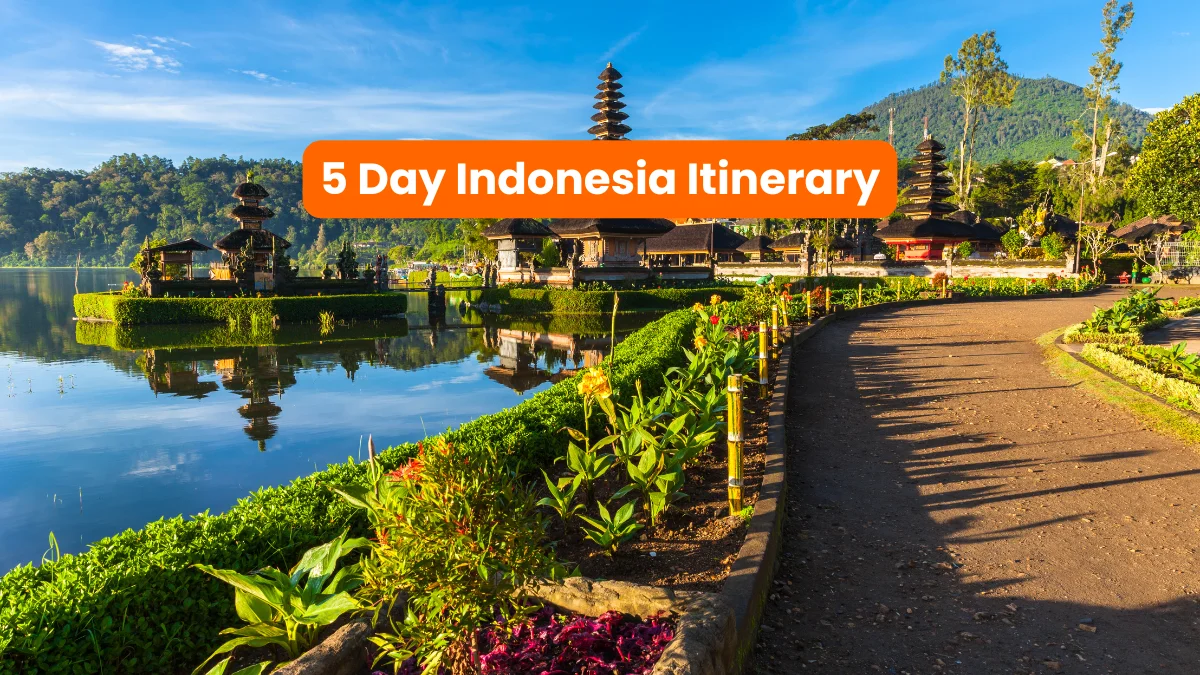Indonesia’s cultural fabric is woven with threads of spirituality and the supernatural. The island nation is a sanctuary for diverse spiritual practices, where ancient beliefs coexist with modern faiths. Through its rituals, myths, and revered shamans, Indonesia illuminates the connection between the mundane and the mystical.
Hindu-Balinese Rituals and Temple Offerings
Bali stands out for its Hindu beliefs, unique in a largely Muslim nation. Central to this are the temple offerings and rituals:
- Canang Sari: Daily offerings of flowers, food, and incense, crafted in banana leaf plates, are common sights and a critical part of Balinese Hindu life.
- Odalan: Temple anniversaries are celebrated with elaborate rituals, music, and traditional dance, showcasing the mystical allure of Bali.
- Ngaben: The Balinese cremation ceremony is a dramatic, colorful affair, purifying the spirit for its journey to the afterlife.
These practices not only enrich Bali’s cultural sphere but also attract visitors keen to experience their rich, spiritual dimensions.
Islam in Java, Sumatra, and Daily Practices
In predominantly Muslim Java and Sumatra, Islamic practices shape daily life, harmonizing with local customs:
- Daily Prayers: The rhythm of life is marked by five daily prayers, a reflection of Islamic devotion deeply woven into the fabric of life.
- Fasting During Ramadan: The entire nation embraces the month of fasting, marking it with community prayers and the joyous celebration of Eid al-Fitr.
- Local Syncretism: In regions like Java, Islamic traditions mingle with ancient animist beliefs, creating a unique tapestry of spiritual practices.
These customs illustrate Indonesia’s ability to blend global and indigenous beliefs seamlessly, resulting in a uniquely syncretic spiritual environment.
Ghosts, Spirits, and Local Myths (e.g., Kuntilanak, Tuyul)
Indonesia’s folklore is rich with mystical creatures and spirits, capturing the imagination:
- Kuntilanak: Often depicted as a female ghost, her haunting presence in stories serves as a moral reminder against wrongdoing, especially towards women.
- Tuyul: A mischievous spirit in the form of a child, symbolizing lost innocence or familial discord over material wealth.
- Local Rituals: Traditional ceremonies, such as cleansing rituals to ward off spirits, are deeply tied into the belief system.
These myths are vital cultural components, reflecting societal values, fears, and the ever-present belief in supernatural forces.
Sacred Places, Shamans, and Animism
Indonesia has a long history of animism and shamanistic practices, particularly in:
- Sacred Places: Sites believed to connect the spiritual and physical words are prevalent, where rituals and offerings help maintain community harmony.
- Shamans (Dukun): Acting as intermediaries, shamans provide healing and guidance, drawing on ancient knowledge passed down through generations.
- Animism: Particularly in remote areas, an animistic worldview persists, viewing natural elements as possessing spirits.
These spiritual practices enrich Indonesia’s cultural diversity, providing fascinating insights into the nation’s vibrant tapestry of beliefs.




